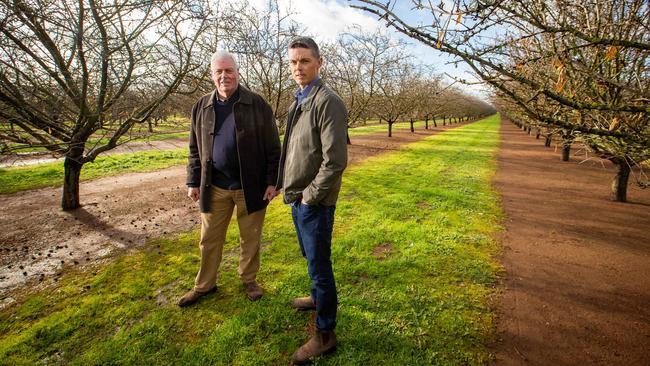Coalition’s free-trade push aims to crack European market
The Turnbull government will today launch negotiations for a free-trade agreement with the EU.

The Turnbull government will today launch negotiations for a free-trade agreement with the EU in a bid to better tap a market of half a billion consumers and a GDP of $17.3 trillion.
The agreement promises to be one of the biggest negotiated by Australia, with EU trade commissioner Cecilia Malmstrom meeting in Canberra today with Trade Minister Steven Ciobo, who will push for greater access for Australian food and agricultural products.
The first round of negotiations is scheduled for Brussels next month, with Mr Ciobo saying the government is “opening the door to the world’s largest markets” and giving Australian businesses a “competitive advantage so they can compete and succeed”.
“Australia produces clean, green and premium products. From Ferrari parts to premium Australian produce for fine dining, Australian exports are in demand in Europe,” he said. “I want to see more Australian premium produce on plates from Prague to Paris; more Australian know-how helping build infrastructure from Italy to Belgium; and more Australian service providers making their mark across Europe.”
Mr Ciobo said access for exporters in the education, financial and professional services sectors was a major objective. “Establishing a framework for the mutual recognition of professional licensing and qualifications will improve the ease of doing business across the EU,” he said. “We will also explore rules and initiatives to support the digital economy, innovation and increase opportunities for hi-technology starts-ups.”
He noted that a free-trade deal would support the expansion of two-way investment, with the EU being Australia’s largest source of foreign investment in 2017 and the second-largest destination for Australian foreign investment.
The Australian almond industry welcomed the launch of negotiations, noting that about 70 per cent of Australian almonds were exported, with nearly half going to Europe where they are hit with a tariff of about 5.6 per cent.
Europe accounts for just over 43 per cent of Australian almond export sales, worth more than $200 million last year. If the tariffs were removed, the industry argues it would improve price competitiveness for Australian growers, as well as EU processed food manufacturers who use almonds as ingredients.
South-Australian almond co-operative Almondco, which has invested heavily in developing a presence in Europe, said lower tariffs would prove invaluable.
“While the promise of our premium Australian quality opens doors, retail margins in such mature markets are often so tight that an FTA could be the difference between winning and losing new business,” Almondco managing director Brenton Woolston said. “In an global trade environment where there is growing uncertainty, our existing FTAs in key markets are already drawing increased attention.”
Jim Pierson, who runs an almond orchard in Virginia to the north of Adelaide, said Australia was “in a situation where 75 per cent of its production is now exported”. He said any free-trade deal that reduced European tariffs would be a “definite help”. “A big percentage (of Australian exports) goes into Europe. Any import tariff into Europe affects our price in that regard,” he said.
The government said other industries would also benefit, noting that Australia also manufactured cables used in EU aerospace, transportation, telecommunications and electronics industries — including in Airbus planes — which were subject to a tariff of about 3.7 per cent. Silicon exports to the EU, worth about $49m a year, are hit with a 5.5 per cent tariff while other silicon-exporting nations such as Canada enjoy duty-free access. Carbon-fibre wheel rims used in cars including the Ferrari 488 Pista face tariffs of about 4.5 per cent.


